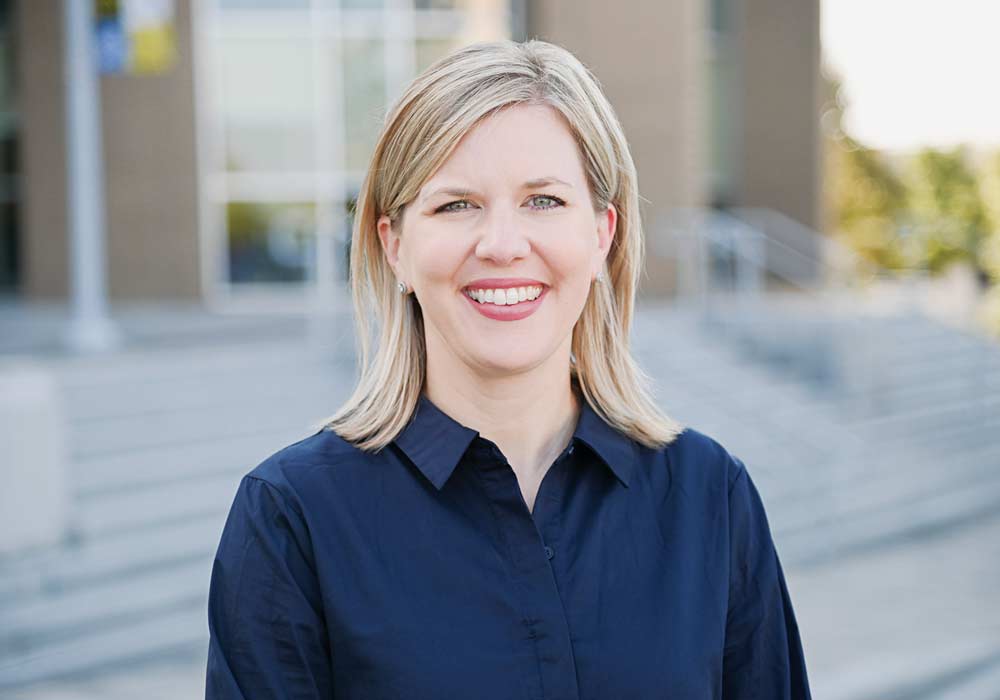Rates of sexually transmitted infections and HIV are higher in rural communities than
urban areas in South Carolina. The Rural and Minority Health Research Center is working
to understand and address the
problem.
“We're not only doing the data analysis that we always do at our research center, we’re also looking at, ‘OK, how do we change this? What kind of policy levers, programming, provider education or patient education can we do?’” says Elizabeth Crouch, the center’s director.

Elizabeth Crouch is director of USC’s Rural and Minority Health Research Center and an associate professor in the Arnold School of Public Health.
For HIV and STIs, just one of the many areas studied by the center’s researchers, the work revolves around understanding the scope of the problem and educating rural patients about how to protect themselves and decrease the spread. The center also provides education opportunities for health care providers in rural areas.
Funded by the Centers for Disease Control and Prevention, the USC researchers looked at South Carolina’s Medicaid claims data to first see where the STIs are co-occurring with HIV.
“If you had a chlamydia, gonorrhea or syphilis infection in the past year, you’ve been potentially exposed to HIV as well. So you should be on the pre-exposure prophylaxis (PrEP) medicine to prevent an HIV infection,” says Crouch, who also is an associate professor in the Arnold School of Public Health.
But PrEP isn’t always sought out or prescribed, especially in rural parts of South Carolina.
“There can be some stigma to accessing care in rural areas at the federally qualified health clinic,” she says. “In a small town, do you want to go to the clinic to get tested? That’s part of the issue. You may only have one or two pharmacists working in the area. Do you feel comfortable with sharing your information and getting this filled?”
She also said some patients may be reticent to share details of their health information with local family physicians who may be treating a patient’s entire family. And long-time family doctors may be unsure or not fully aware of the need to prescribe PrEP for HIV prevention.
The center has created and distributed curriculum information for providers to help rural health clinicians better understand when and how to prescribe PrEP. It also is working with an app developer to create training modules for patients and providers in rural areas.
Researchers have collaborated with others across the state, including the S.C. Office of Rural Health and the state Department of Health and Environmental Control to look at provider training.
“We may anecdotally know some of this, but I think one of the great purposes of our center is that we can look at this data and provide this information for the state,” she says.
Next, the center, which has been continuously funded since 2000, will look at rural-urban differences across the country using national Medicaid data.
“Our state is very important because it’s a representative Southern state, highly rural, with high levels of minorities as well,” Crouch says. “Let’s see how those translate at the national level so that national provider training can be changed in order to better help reduce the spread of STIs and the spread of HIV in the country.”
